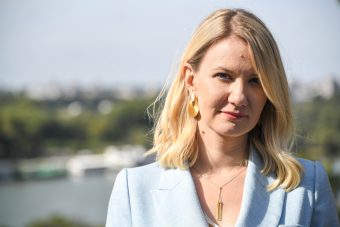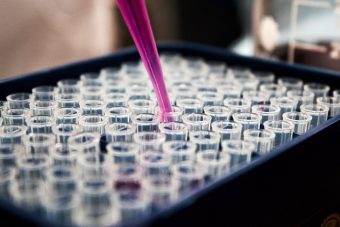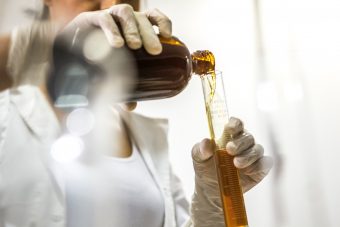
In less than two years since the foundation, the Science Fund of the Republic of Serbia has opened as many as five programs of support for scientific research papers. In 2021, additional programs are expected to be opened, offering new opportunities to scientists for research work funding. At the head of this Fund, in the position of acting Director, is Milica Đurić Jovićević, PhD in electrical engineering and computing. Given her extensive experience in implementing multidisciplinary projects which link science and economy, we asked about opportunities to support innovation in entrepreneurship. However, the main topic of our conversation was the plan for the development of projects of our young researchers under the auspices of the Fund managed by Milica.
EP: Various projects financed by the Fund included 809 researchers. How should this data be observed since this is less than 10 percent of the total of 12,000 researchers in Serbia?
Milica Đurić Jovičić: The Science Fund was established to support scientific research work through competitive calls, to have high criteria for project selection and to help those who are best ranked according to criteria of scientific excellence, the impact of that research on the further development of science, economy or society, based on the competence of all team members, as well as research implementation plan. It is a completely different model in relation to how projects were selected or monitored their implementation in the past 10 years. The Fund is rapidly growing as well as the number of projects and researchers to be involved. By the end of 2021, we expect to involve more than 2,000 researchers through various programs. It is important to point out that the community has not been harmed in any way. The researchers have continued to receive financial support from the Ministry of Education, Science and Technological Development through institutional funding thanks to the reform and new law.

EP: Which ideas were selected within the Program for Excellent Project of Young Researchers (PROMIS) that the Fund will support for the next two years?
Milica Đurić Jovičić: Within the PROMIS program, projects of 59 research teams have been selected to implement the basic and applied research in all fields of science: natural and mathematical sciences, technical and technological, medical, biotechnical, and social sciences, and humanities. The research results will have the widest implementation in everyday life, from environmental protection, preservation of cultural monuments, improvement of health care and psychiatric treatment, creation of new energy materials, conservation of plant resources to the development of food products. Many researchers expect their projects to have a long-term effect on the economy, production, industry and society’s benefit from the research.
In focus:
EP: The publication on the PROMIS Program is adorned with excellent illustrations that accompany project summaries. Is this a sign that we have started promoting the right content, ideas and role models in an interesting way to the audience?

Milica Đurić Jovičić: The work of our scientists has great potential, and everyone must be informed about it in an understandable way. The PROMIS edition, which we published in cooperation with the Centre for the Promotion of Science, presents projects in an original and creative way through 59 original illustrations by our best illustrators. The publication contains descriptions of all PROMIS projects and short texts on the main objectives, expected results and research methodology. The idea was to present these interesting projects to the public but also to inspire new research and new collaboration.
EP: Last year, funding was approved for 14 projects in the framework of the COVID-19 research program. Among them were those engaged in mental health research at the national level after the pandemic and the immune responses of patients who had suffered from this viral infection. How should these results be used to contribute to the success of our fight against the pandemic?
Milica Đurić Jovičić: Our scientists will look for answers to many questions caused by pandemic: from what the new more efficient methods for detecting the virus are, how to preserve the mental health of people, to how to economically deal with the consequences of the pandemic at the microeconomic and macroeconomic level. One of the projects that the Science Fund will finance is a project of researchers from the Institute of Economic Sciences, which will first identify most economically affected groups by this pandemic and then investigate how the crisis affected their position and propose most effective measures. Kapsido project is also very interesting, within which students from the Faculty of Chemistry at the Belgrade University will develop a method for detecting viruses based on specific antibodies in animals. Within another project, scientists will examine how the pandemic affected people’s mental health. The topics are different, and the expectations from our researchers are high because all these projects and their results are significant for our citizens.
Interview by: Tamara Zjačić
Read the whole interview in the new issue of the Energy portal Magazine CIRCULAR ECONOMY, march 2021 – may 2021.

